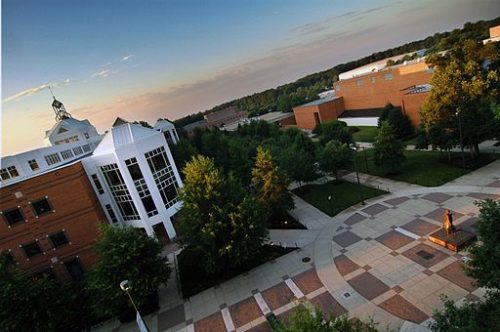
Inside Higher Ed reports that a student group called Transparent GMU is suing George Mason University to access copies of agreement documents between private donors and the George Mason University Foundation. Specifically, they are interested examining the nature of transactions with the Charles Koch Foundation to determine the degree to which their education may be influenced by those donor agreements.
As readers may recall, it was a 2016 donation from this foundation that renamed GMU’s law school after the late Antonin Scalia, an issue that provoked much resistance from students and faculty. A donation from the same foundation caused controversy at Florida State University, where the Tampa Bay Times alleged that an agreement allowed the Koch Foundation to “screen and sign off on any hires” for the two new programs and to “withdraw its funding if…not happy” with the faculty who are hired or if they “don’t meet ‘objectives’ set by Koch during annual evaluations.”
Presumably, the students believe they should be informed about these sorts of agreements, if they exist. However GMU has responded that the requested documents are outside the scope of the Virginia Freedom of Information Act.
Sign up for our free newsletters
Subscribe to NPQ's newsletters to have our top stories delivered directly to your inbox.
By signing up, you agree to our privacy policy and terms of use, and to receive messages from NPQ and our partners.
“We believe the public has a right to know the details of our university’s operations, including its relationship with private donors,” student Gus Thomson said in a statement. The foundation “is doing work for our public school, so it should be held to the same disclosure standards as the university itself.”
Evan Johns, the students’ attorney, said the law “simply does not allow a public university to conceal its records by outsourcing its public business to a private company.”
Michael Sandler, university spokesperson, responds, “Donors have the right to request anonymity. And the university and foundation have a responsibility to respect the privacy of those donors. The state recognizes this. If not for the support of private gifts, many of our students would not have the opportunity of higher education. And many of our researchers wouldn’t be able to pursue their work without that support, either.”—Ruth McCambridge











